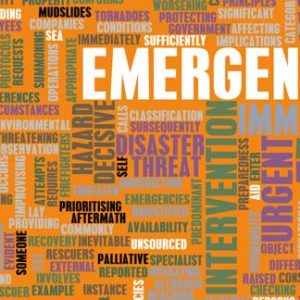
Effective communication: Mastering the art of workplace dialogue
27 Feb 2024
The modern workplace has never been more complex. But something I believe helps make it a little easier to navigate is good communication. In my opinion, effective communication is the cornerstone of successful leadership and team collaboration.
Whether you're new to management or a seasoned leader, mastering the art of workplace dialogue is not just an aspiration but a necessity. In this article, I'll explain the elements of effective communication and how they can be applied to difficult conversations and team collaboration. Let's get started.
Principles of effective communication
So, what's at the heart of effective communication? I'd say there are a few elements:
- Clarity – Be clear, concise and transparent to avoid any confusion.
- Active listening – Listen closely, don't interrupt and make sure you understand what's being said.
- Empathy – It's a given not everybody thinks the same way. Understanding other points of view can build trust and respect.
- Adaptability – Not every member of your team shares the same personality traits. Understand that communication techniques that work for one person may not be as effective with another.
- Willingness to grow – Remember, you may be a leader, but that doesn't mean you're perfect. Ask for feedback and if something isn't working, be prepared to adjust your approach.
Don't lose sight of these elements when communicating in the workplace and you may find your dialogue with team members takes a more productive turn.
Navigating difficult conversations
Mastering effective communication will also serve you well when you need to have an inevitable difficult conversation. You can't always predict what will be said during these discussions, but you can equip yourself with techniques that inspire confidence and professionalism.

Go into these conversations with empathy and sensitivity. The goal is to solve problems — not blame or point fingers. Emphasise the importance of clarity and transparency, ensuring that all parties involved understand the issues being discussed and collaborate toward finding solutions.
Just as important as the actual conversation is how you follow up. Take notes throughout the discussion so you can send a clear recap and next steps. This shows you were listening and you're committed to resolving whatever issues necessitated the conversation.
Enhancing team collaboration
While you, as a leader, need to master effective communication — so too does your team. Effective communication serves as the bedrock of successful team collaboration. Foster an environment where open communication thrives, encouraging feedback and collaborative problem-solving.
In addition to modelling good communication for your team to see and emulate, provide them with strategies to facilitate constructive dialogue. Regular team meetings, brainstorming sessions and structured communication channels could all help achieve this goal. By empowering team members to voice their ideas and concerns, you can harness the collective intelligence of your team and drive innovation.
Like with difficult conversations, remember to take good notes and track issues to ensure they're not slipping through the cracks. Listening is important, but your teams want to know that you're committed to addressing problems.
Better communication with help from ICML
With these insights, you're poised to elevate your communication skills and transform workplace dialogue within your team.
If you want to go a step further in advancing your communication, ICML is ready to help. Consider exploring our Communication Skills course for more in-depth techniques and guidance.
By investing in communication skills development, you not only equip yourself with the tools to navigate the complexities of leadership but also empower your team to reach new heights of collaboration and productivity. Together, you can create a workplace where dialogue flows freely, ideas flourish and collective goals are achieved.





